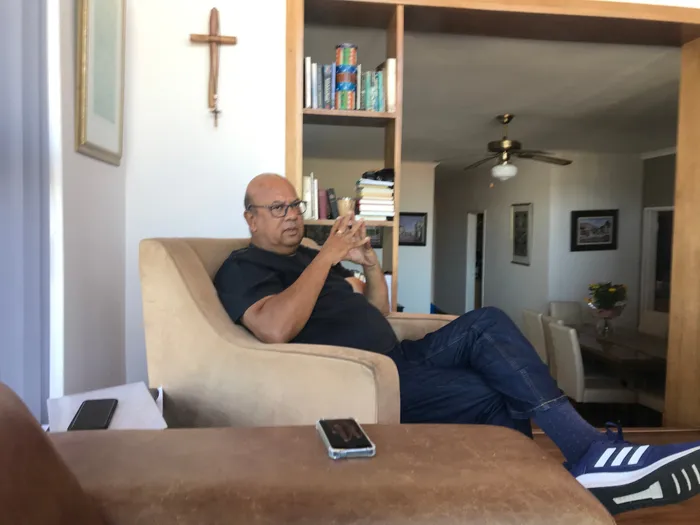IEC veteran Reverend Courtney Sampson retires

Reverend Courtney Sampson chats about his time at the IEC.
Reverend Courtney Sampson, 65, has retired from the Independent Electoral Commission of South Africa (IEC) after two decades at the fore as the provincial electoral officer in the Western Cape.
It’s a journey Reverend Sampson looks back on with pride.
“When I started out in 1999, it was about doing national service for the country, and not just the province or a community, it was national service, and we were responsible for the management of the elections which is vital to our constitution,” says Reverend Sampson.
One of his key tasks was meeting regularly with political party leaders, hearing their concerns and making sure they understood the workings of the IEC.
“I started on the 1st of April in 1999, just two months ahead of the elections that year. So I was invested from day one, and a task I had to do then was to meet with Qibla leader Achmad Cassiem. I learnt so much from that experience as I was dealing with a freedom fighter, a political leader. If you acknowledge people for who they are and what they did, then they return the respect, and this was how I operated, meeting them face to face and listening to them.
“The same with community leaders: you go to them and hear what it is that they need and want in their communities. We had to pre-empt what could happen and not wait for action and then react. We had to create an environment where we could work amicably with all leaders.”
Reverend Sampson credits the men and women he worked with for making the IEC work effortlessly, but he admits there were problems, even on election day.
“I always convinced myself that we were prepared, that nothing would go wrong... and I was always wrong. But these mistakes kept me sane, kept me on my toes, as I would be held liable so I had to be ready.
“A contractor came running to me one day, to report a problem, and I said to him don’t run, it will cause panic, the media will see and ask questions, we don’t need to create problems, so please walk, slowly,” he laughs.
“Then we had someone loading ballot papers on a bakkie, and a box of ballot papers fell off this bakkie - it was a mess. Another voting station ran out of ballot papers. But we had contingency plans in place in case things went wrong and we sorted these issues quickly.
“With such errors, you have to speak to the political leaders immediately, inform them before it becomes a rumour, a problem. We had good people that could handle such problems quickly and efficiently, and I’m thankful to them for their service.”
Dealing with political leaders was not the full scope of Reverend Sampson’s duties: he had to communicate with the heads of the army, national intelligence and SAPS on security measures.
“As a priest, I did not think I would be involved with such tasks, but here I was. I formed good relationships with the commanders. We understood their role, and they understood ours. When it came to security, we had to be on top of matters, anticipating problems, having vehicles and helicopters ready for any and all emergencies.”
Even though he has served the country with distinction, Reverend Sampson is unhappy with the state of South African politics.
“The political leaders should be addressing poverty and inequality; reconciliation should be a secondary discourse. While you can reconcile racist systems, you cannot reconcile wealth and poverty, and that is the challenge at the moment, and we don’t have strong enough voices or minds that can take us through this process.”
While Reverend Sampson has retired from the IEC, he will continue in his role as lead independent director at Boland Cricket and with his ecclesiastical duties at St John’s Church in Bellville.
